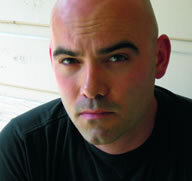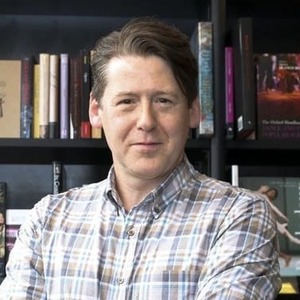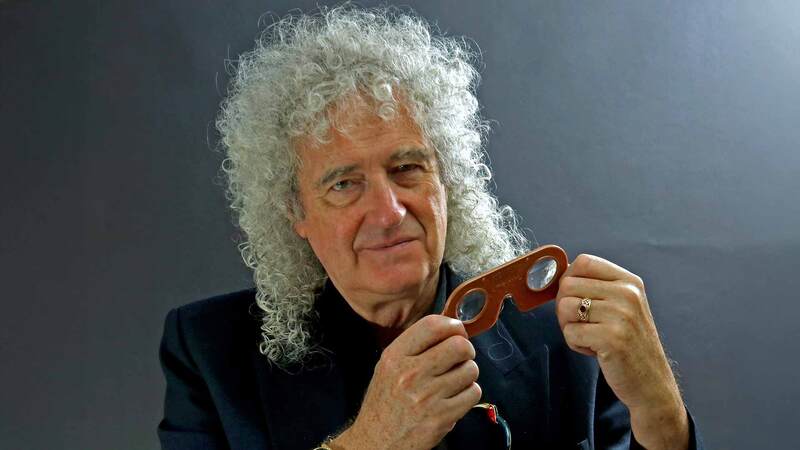You are viewing your 1 free article this month. Login to read more articles.
Philipp Meyer | “I had an enormous momentum, the well was full I had to keep working. It felt like I was on fire.”
Thanks to Hollywood, the US’ current dominant role in popular culture and umpteen “Great American Novels”, the creation myth of the United States is resonantly familiar.
The persecution-fleeing Pilgrims, freedom-loving Founding Fathers, and pioneers who tamed the wild frontier combined to create the American Dream: an “all men are created equal” society where prosperity and upward social mobility can be won with grit, gumption and good old-fashioned hard work.
Like the self-aggrandising myths that all nations have, the ingredients in this are comprised of a kernel of truth and a mountain of horse hockey. The reality of the forging of the US is, of course, vastly more complicated, and in some cases, deeply uncomfortable.
It is the uncomfortable side of the American Dream that Baltimore-raised, Austin, Texas resident Philipp Meyer explores in his second book, The Son (Simon & Schuster), an epic, searing look at several generations of Texans from the founding of the state to the present day. The Son has all the hallmarks of an instant classic; it is a big book—in scope, in ideas, in landscape. It is the best American novel released in the past 12 months, arguably the best American book thus far this century. Think Cormac McCarthy with strong female characters or a more rusticated, visceral Jonathan Franzen.
The Son begins with Eli McCullough, who as a boy on the Texas frontier in the 1830s witnesses the horrific slaughter of his family by a raiding party of Comanches, who then raise him as one of their own. Decades later Eli has left the Comanches and carved out a position as one of the most powerful men in Texas, with a ruthlessness his son Peter fully detests.
In the present day, Eli’s formidable great-granddaughter Jeannie looks back at how over the previous 60-odd years she made the McCullough family business into an oil-producing powerhouse, battling sexism and intransigence in doing so.
Meyer did not sit down to write a book puncturing the American Dream. “All my ideas come somewhere from my subconscious; I’m never aware why I’m doing something. I thought the book might have to do with Texas and oil. But then I started thinking that the whole history of Texas was emblematic of the mythology of America as a whole, the whole creation myth. You could go out west to Texas where there is untamed and unsettled land and resources, and all you have to be is brave to be successful.”
Angels and demons
Central to The Son is its moral complexity and ambiguity. Eli can be cold-blooded (a key scene is when he leads an attack on a rival rancher in which everyone in the rancher’s household—men, women and children—are slaughtered), yet he does have a particular code of honour. The Comanches are portrayed sympathetically, yet Meyer does not flinch from showing their savagery: the multiple rapes of female captives, a days-long torture of a cowboy who blunders into their camp. “Dances with Wolves” this ain’t.
“It is very nice to set up someone as the angel, someone as the demon, but it’s just uninteresting and is all sort of hokum, anyway,” says Meyer. “People are people, and there are these comfortable lies many tell themselves about the ‘taming’ of the West. On the right, there is this notion of noble whites moving into this unsettled, untrammeled wilderness. But it was settled; the continent was at its carrying capacity for people according to the technology they had.
“And people on the left are very attached to this myth that Native Americans were this mystical perfect people: superhumanly wise and peaceful, amazingly superior to the selfish and cruel Europeans. Again, a lie. All the Native American tribes went to war with each other even before whites came and wiped each other out, like people everywhere do.”
Though dealing with these large thematic issues, Meyer felt it was important to keep the book grounded in the narrative. “I didn’t want it to be me, the writer, lecturing at the reader, which is what a lot of postmodern writers do. In a strange way I had to do some actual myth-making with my characters and the story, to go along with the theme of commenting on the myth-making of America, or it simply wasn’t going to work.”
Basement blues
Meyer is one of the rising stars of American letters, having featured as one of the New Yorker’s 20 under 40 list of US writers in 2010 (other honorees included Chimamanda Ngozi Adichie, Jonathan Safran Foer and Téa Obreht). His début, 2009’s American Rust (Pocket), was widely praised, won the Los Angeles Times Book Prize, and was a Waterstones New Voices selection in the UK. Not bad for someone who dropped out of high school.
When he was five years old, Meyer’s parents—“intellectual, hippie bohemian types”—moved from New York to a hard-scrabble neighbourhood in Baltimore. He says: “My mother was an artist, my father was in grad school, so we didn’t have any money. It was a crummy neighbourhood, though as Baltimore went, it was relatively safe. Sure, people were killed, but it wasn’t random. Someone got beaten to death outside our house, but everyone in the neighbourhood knew who did it, and why it happened.”
Meyer himself did get “my butt kicked every once in a while”, but he puts it down to the environment. “The textile industry that had supported the neighbourhood had collapsed, everyone was on welfare. People were suffering. There is a violence that goes with that kind of poverty.”
He dropped out of school because it “seemed quite normal” and spent a couple of happy years working as a car mechanic until he got restive. He earned his high school diploma and went to university, first to a lower-tier college in Baltimore before he transferred to Ivy League Cornell. It was during his first English composition class at university when he got the writing bug, inspired by a particularly encouraging teacher.
He took a job in Wall Street for a couple of years in order to finance his writing, finishing “one crappy novel—it was complete garbage—and one mediocre one”. Feeling he needed to fully concentrate on writing, he quit his finance job and moved back into his parents’ basement.
“That was Year Zero,” he says, laughing. “It’s a good story now, but I was in a period of two years of deep humiliation, having to explain to everyone what the hell was going on with my life. People were saying: ‘Dude, you went to Cornell, you were a trader on Wall Street. What happened?’”
Yet in those couple of years, he continued to write compulsively and eventually found his voice and “figured out how to do art”. He secured a place at the prestigious James Michener Center for Writers at the University of Texas, which gave him the time to write American Rust.
He prospered, he thinks, because he studiously avoided the “crazy” workshop approach of the creative writing programme. “No working artist shows their work to people and says: ‘Hey guys what should I do with this?’ When people gave me notes on my writing in class, I was doing grocery lists. I would nod, smile and write: laundry detergent; potatoes; cucumbers.”
After two books about America, he is currently working on quite a departure: a “magical realist take on the afterlife”. He moved directly from The Son into his current project: “After I finished American Rust I was spent, the well was empty. But a lot of things happened personally to me in writing The Son—I was married, divorced, moved across country a couple times. That settled last winter. I had an enormous momentum, the well was full I had to keep working. It felt like I was on fire.”
Personal file
1974 Born in New York City, moves to Baltimore aged five
1990 Drops out of high school; works as a mechanic
1994–99 Cornell University, BA English Literature
2000–05 Works as a derivatives trader at investment bank UBS, moves back to Baltimore
2005–08 Michener Center for Writers, Texas, MFA
2009 American Rust published
2010 Awarded a Guggenheim fellow
2013 The Son published
Book data
Publication date: 18/07/13
Formats HB/EB
ISBNs 9780857209429/ 9450
Rights Sold into 16 territories
Editor Suzanne Baboneau
Agent Peter Straus, RCW (UK, Commonwealth, and translation); Eric Simonoff, WME (US)
American Rust
Pocket, 9781847394125, £7.99
Two young men living in a dying steel town in Pennsylvania plot their escape.
Books sold: 14,326 since 2009










